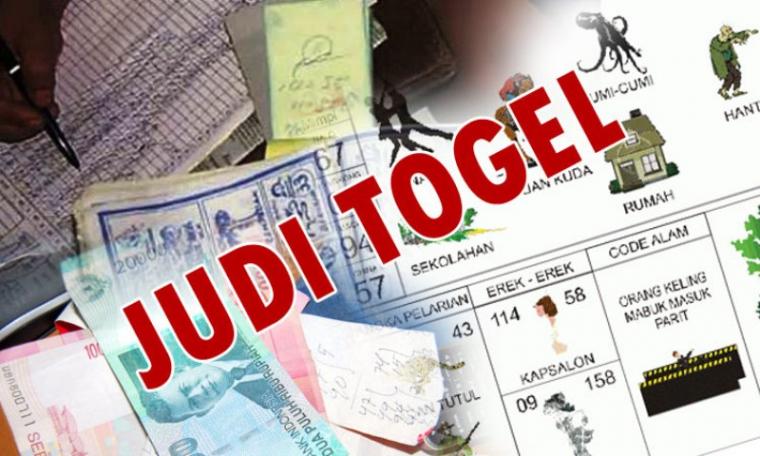Togel, short for Toto Gelap, is a popular lottery game that has become deeply ingrained in Jakarta’s urban culture. Despite its legal challenges, Togel remains a significant pastime for many residents, particularly among lower-income groups. Among those who often engage in Togel are Gojek drivers, street vendors (asongan), and other working-class individuals who seek quick financial relief or hope for a better life. The widespread participation in Togel within Jakarta’s lower class has both positive and negative consequences, influencing both their economic situation and social dynamics.
What is Togel?
Togel is a number-based gambling game where players select a set of digits, hoping to match the numbers drawn in an official or informal lottery. Originally derived from Chinese culture, it has evolved into a widely popular game throughout Indonesia, particularly in major cities like Jakarta. The simplicity of the game, along with the potential for high rewards with relatively small bets, makes it appealing to individuals from all walks of life.
While Togel is technically illegal in Indonesia, it continues to thrive in both informal and underground markets. Players can bet on different combinations of numbers, such as 2D, 3D, or 4D, and win significant amounts based on the odds and the size of their bet.
Togel and the Lower-Class in Jakarta
In Jakarta, Togel has a significant following among individuals from lower-income groups. The game offers a quick chance to potentially win large sums of money, and for many, it represents a way to escape poverty or achieve financial freedom. Among the lower-class population, the game is especially popular with Gojek drivers, street vendors (asongan), and daily wage laborers.
The Gojek Driver’s Perspective
Gojek drivers are part of Jakarta’s gig economy, earning money through ridesharing, deliveries, and other services. Many Gojek drivers work long hours for relatively low pay, often struggling to make ends meet. For these drivers, the lure of Togel is strong. A small bet on a lucky number might seem like an easy way to solve immediate financial problems, such as paying for daily expenses, fuel, or unexpected costs.
The promise of a significant payout from Togel offers a form of hope and excitement in an otherwise challenging daily routine. A win could change their life in an instant, providing the financial freedom to pay off debts, improve their living conditions, or send their children to school. For some Gojek drivers, Togel becomes a part of their regular routine, with many choosing to gamble with the tips or spare change they receive from passengers.
The Impact on Street Vendors (Asongan)
Street vendors, or asongan, are another group in Jakarta’s lower class who frequently participate in Togel. These individuals sell various products on the streets, such as snacks, drinks, and daily necessities. Like Gojek drivers, many street vendors work long hours for modest earnings, often struggling to meet the basic needs of their families.
For street vendors, Togel offers an escape from financial strain. The small bets they place on the lottery can provide a glimmer of hope for a better life. Winning Togel could mean a significant improvement in their living conditions, and many vendors see it as a shortcut to achieving financial security.
However, the downside is that some street vendors end up spending more money on gambling than they can afford, which can further deepen their financial struggles. This reliance on Togel can lead to cycles of disappointment and poverty, especially for those who consistently lose.
The Psychological Impact of Togel on the Lower Class
The impact of Togel extends beyond just the financial aspects; it also affects the psychology of those who play the game. For many working-class individuals in Jakarta, the daily grind can be exhausting and demoralizing. With wages that barely cover the cost of living, the promise of a life-changing win from Togel becomes an attractive fantasy.
For many Gojek drivers and street vendors, Togel offers more than just a game—it becomes a form of hope. The idea that a small bet could lead to a large prize gives these individuals something to look forward to in their otherwise difficult lives. This hope, however, can be a double-edged sword. While it provides temporary relief and excitement, the constant pursuit of quick wealth can lead to frustration, anxiety, and even addiction.
Losing frequently can cause emotional distress and a sense of failure. Some individuals become trapped in a cycle, where they continue to gamble in hopes of recovering their losses, but end up losing even more. This cycle of gambling and loss contributes to ongoing financial hardship, and in some cases, can have negative impacts on their families and communities.
Social and Economic Consequences
The widespread participation in Togel has broader social and economic consequences in Jakarta. While the game offers the promise of wealth, it also fosters a sense of inequality and dependency. Many individuals from lower-income backgrounds view Togel as their best chance for upward mobility, but the odds of winning remain slim, and the vast majority of players experience disappointment.
- Financial Instability: For Gojek drivers and street vendors, the money spent on Togel could otherwise be used for more productive purposes, such as saving for emergencies or investing in their businesses. The temptation to gamble, however, often takes precedence, leading to financial instability and even debt accumulation.
- Family and Social Strain: Togel addiction can also strain relationships within families. For Gojek drivers and street vendors, the time spent gambling or the money spent on bets could be better spent with family members or invested in their future. Frequent gambling losses can lead to tension and frustration at home, contributing to familial problems and social isolation.
- Legal Risks: Because Togel is illegal in Indonesia, individuals who engage in the game are technically breaking the law. While enforcement of anti-gambling laws may not be widespread, individuals who are caught participating in illegal gambling activities risk fines or even imprisonment. This adds an element of danger to the already high-risk nature of Togel gambling.
The Role of Online Togel
In recent years, the rise of online Togel platforms has further amplified the impact on Jakarta’s lower class. These digital platforms allow players to access Togel from their smartphones, making the game more accessible than ever before. Many Gojek drivers and street vendors now turn to online platforms, often spending their hard-earned money on bets through apps or websites.
While online Togel may offer a more convenient way to play, it also increases the potential for addiction and financial loss. The ease of access makes it harder for individuals to resist the temptation to gamble, which can exacerbate their financial and emotional challenges.
Conclusion
Togel has become a deeply embedded part of Jakarta’s lower-class culture, providing a source of hope and excitement for Gojek drivers, street vendors, and other working-class individuals. While the game offers a potential escape from poverty and hardship, it also comes with significant risks, including financial instability, emotional distress, and the potential for addiction.
For many, Togel represents the possibility of achieving a better life, but the odds of winning remain slim, and the consequences of continuous gambling can be damaging. As Jakarta continues to grow and evolve, it is essential to address the broader social and economic issues that drive individuals from lower-income groups to rely on Togel as a way to solve their financial struggles. By promoting better economic opportunities and social support systems, Jakarta can help reduce the dependency on gambling and offer a more sustainable path to financial stability for its lower-income residents.





